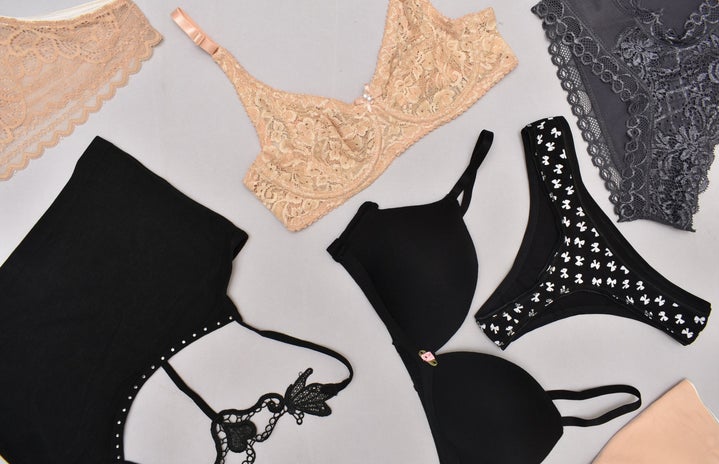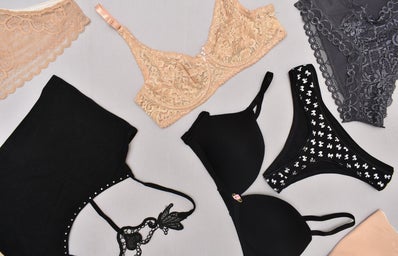It is December of 2017: I am sitting on my living room couch with my popcorn, chocolate, and coke ready in anticipation. It wasn’t movie night, rather the night of the annual Victoria’s Secret Fashion Show. I wasn’t interested in wearing lingerie but for some reason I was obsessed with the beautiful models, the extravagant runway decorations, the opulent angel wings, and all the buzz that surrounded the show. Almost five years later, I question why I was so obsessed with something that represented a beauty standard that is unattainable to most women, headed by a transphobic men who rubbed shoulders with Jeffrey Epstein.
Hulu released a new mini-documentary series in the summer called Victoria’s Secret: Angels and Demons, which focuses on chairman and former CEO Les Wexner, his relationship with Jeffrey Epstein, and how the brand went from pop culture royalty to pop culture peasantry.
Les Wexner Saves the og Victoria’s SECRET FROM Bankruptcy
Original founder Roy Ramond entered a department store and was completely uncomfortable with buying lingerie for his wife. This inspired him to establish a store specifically for men to buy lingerie for their partners. In 1977, Raymond opened up the first Victoria’s Secret store in Palo Alto California: a women’s underwear shop that was targeted at men.
In 1982, Les Wexner founded the lucrative L Brands and bought Victoria’s Secret at a time when it was on the brink of bankruptcy. Wexner rejected Raymond’s original idea and shifted the target buyer to women because he believed they had more buying power over men. Despite shifts in business strategy, the brand still maintained its European, old-money aesthetic… at least for now.
The turn of the century marked the arrival of the angels and the infamous fashion show
Third-wave feminism encouraged women to embrace their sexuality, and with it, popular television shows, books, and movies started to include characters who weren’t as “pure”, well-raised, rich and restrained. As a result, Victoria’s Secret models were no longer the aristocratic, clean girl socialite but rather, the scandalous and heavily made-up angels.
In 1995, Wexner and his Chief Marketing Officer Ed Razek decided to hold an annual fashion show. Before its demise, the show was broadcasted over the world and helped drive up sales by 1 billion dollars annually. Wexner and Razek made the show the pop culture and fashion Super Bowl due to the show becoming more lavish with celebrity music artists performing. The wings, the concepts, and even the lingerie were corny, but the press and viewers loved it.
The beginning of the end
Behind the glamour and success, VS was a breeding ground for misogyny, abuse, and exclusivity. Hosts were spilling out sexist and violent rhetoric and the models became way smaller than they were in the 90s, even though the average size of the American woman had increased. Diet culture was at the forefront of Western society, with every magazine and chick-flick featuring this toxic trend. As a result, at that time no one batted an eye when models openly talked about their questionable dieting plans before the show. For example, iconic supermodel Adriana Lima opened up about her diet in 2011:
Lima drinks a gallon of water a day. For nine days before the show, she will drink only protein shakes — “no solids”. The concoctions include powdered egg. Two days before the show, she will abstain from the daily gallon of water, and “just drink normally”. Then, 12 hours before the show, she will stop drinking entirely.
– Amy Odell, The Cut
Ed Razek’s Transphobic comments
By 2018, the tide was turning regarding diversity and inclusion in the fashion and entertainment industry. When Ed Razek was interviewed by Vogue and asked whether he would diversify their casting to make the show inclusive, Razek disgustingly said that he had no intention of hiring a plus-sized or transgender model for the show. He reasoned that “the show was a fantasy…” which is horrific to say the least… like gross!
Epstein’s involvement
It is no secret that Lex Wexner and Jeffrey Epstein were good friends. Epstein (allegedly) used his close connection to Wexner to “recruit” young women to model for Victoria’s Secret, which was a scam that turned into a ring of sexual assaults at his mansion. Epstein would manipulate girls by telling them he was a modeling scout for VS despite having no position. This was an open secret, and although Wexner was allegedly made known of this horrific abuse, he didn’t cut ties with Epstein until the late 2000s.
The end of victoria’s Secret empire
By the end of 2018, women’s perceptions of Victoria’s Secret declined dramatically due to the start of the #MeToo and body positivity movement. The brand’s fashion show aired just a month after the string of sexual assault allegations against Harvey Weinstein. The ratings were sinking; the 2018 show received its lowest-ever ratings, with only 3.3-million viewers tuning into the broadcast. In November of that year, L Brands reported a loss of $252 million for the fashion brand. This is because more inclusive and body-positive underwear brands started popping up, resulting in women dropping VS to purchase from a more inclusive and fresh brand. People were simply tired of Victoria’s Secret’s outdated antics and ridiculous sizing range. Ez Razek stepped down, and Victoria’s Secret officially canceled its fashion show in 2019.
Where do we go from here?
Cut to 2021, when VS rebranded from the angel fantasy to what they call “VS Collective,” which consisted of prominent female entrepreneurs and activists. The VS collective essentially serves as ambassadors and not just models. There is a new executive team, a board of directors, and VS officially split from L Brands/Les Wexner. The angel imagery had been officially dissolved. However, these initiatives just seem like band-aid fixes to me. Victoria’s Secret STILL doesn’t have a plus size line and is not an ethically sustainable brand. Victoria’s Secret tried to change its marketing to become more inclusive, but this attempt is far too late. The generation who grew up watching the show in the 90s has outgrown the brand. At the same time, the current generation is hyperconscious about body positivity and inclusion. As a result, it is unlikely that Victoria’s Secret will ever return to the top of the fashion food chain.


